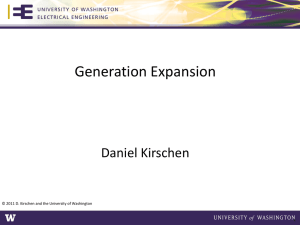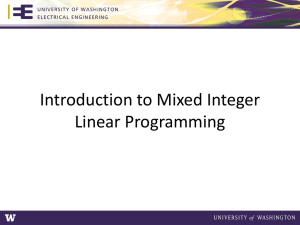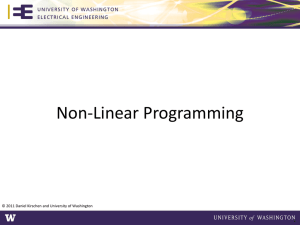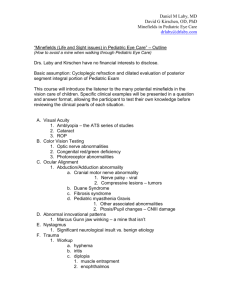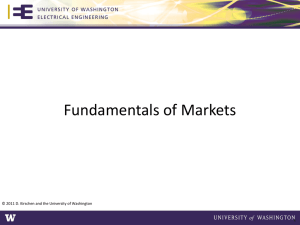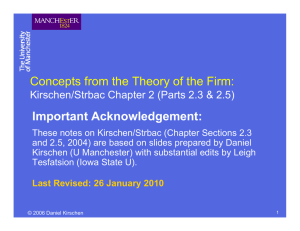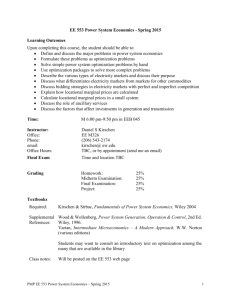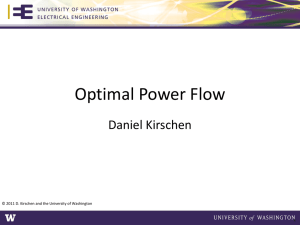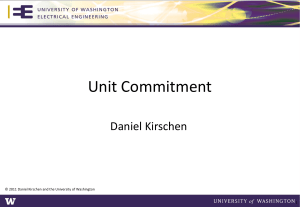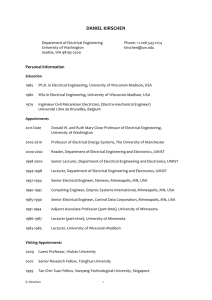Keep the Lights On and the Information Flowing Daniel Kirschen
advertisement
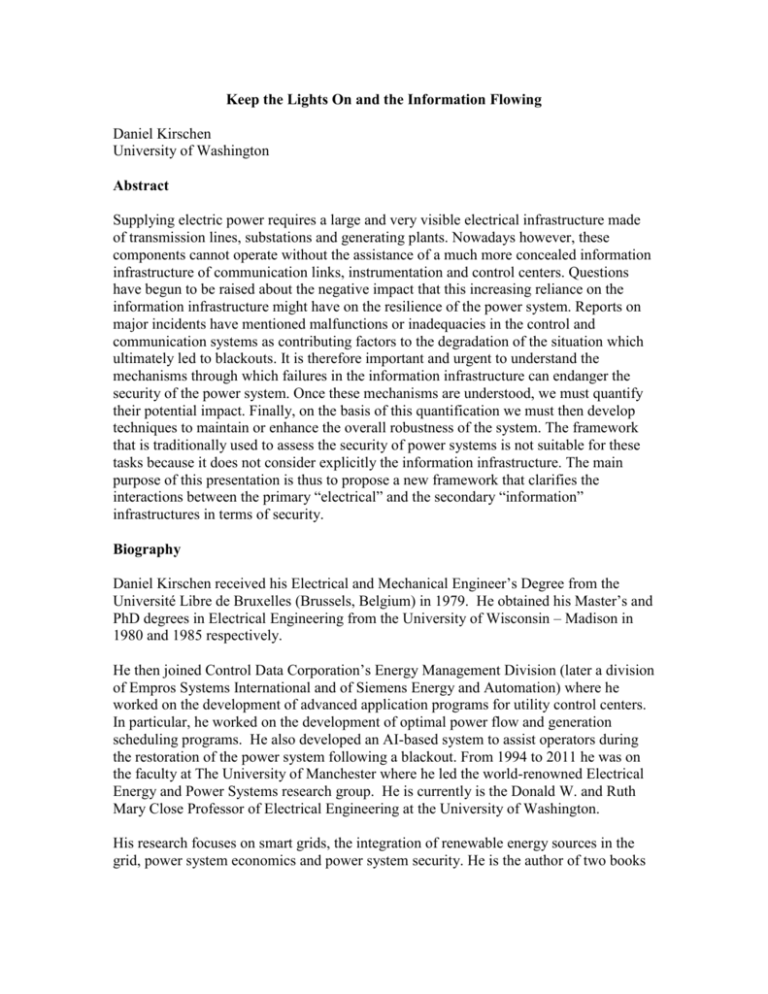
Keep the Lights On and the Information Flowing Daniel Kirschen University of Washington Abstract Supplying electric power requires a large and very visible electrical infrastructure made of transmission lines, substations and generating plants. Nowadays however, these components cannot operate without the assistance of a much more concealed information infrastructure of communication links, instrumentation and control centers. Questions have begun to be raised about the negative impact that this increasing reliance on the information infrastructure might have on the resilience of the power system. Reports on major incidents have mentioned malfunctions or inadequacies in the control and communication systems as contributing factors to the degradation of the situation which ultimately led to blackouts. It is therefore important and urgent to understand the mechanisms through which failures in the information infrastructure can endanger the security of the power system. Once these mechanisms are understood, we must quantify their potential impact. Finally, on the basis of this quantification we must then develop techniques to maintain or enhance the overall robustness of the system. The framework that is traditionally used to assess the security of power systems is not suitable for these tasks because it does not consider explicitly the information infrastructure. The main purpose of this presentation is thus to propose a new framework that clarifies the interactions between the primary “electrical” and the secondary “information” infrastructures in terms of security. Biography Daniel Kirschen received his Electrical and Mechanical Engineer’s Degree from the Université Libre de Bruxelles (Brussels, Belgium) in 1979. He obtained his Master’s and PhD degrees in Electrical Engineering from the University of Wisconsin – Madison in 1980 and 1985 respectively. He then joined Control Data Corporation’s Energy Management Division (later a division of Empros Systems International and of Siemens Energy and Automation) where he worked on the development of advanced application programs for utility control centers. In particular, he worked on the development of optimal power flow and generation scheduling programs. He also developed an AI-based system to assist operators during the restoration of the power system following a blackout. From 1994 to 2011 he was on the faculty at The University of Manchester where he led the world-renowned Electrical Energy and Power Systems research group. He is currently is the Donald W. and Ruth Mary Close Professor of Electrical Engineering at the University of Washington. His research focuses on smart grids, the integration of renewable energy sources in the grid, power system economics and power system security. He is the author of two books and over one hundred scientific papers. Dr. Kirschen is a Fellow of the IEEE and a member of Sigma Xi.


